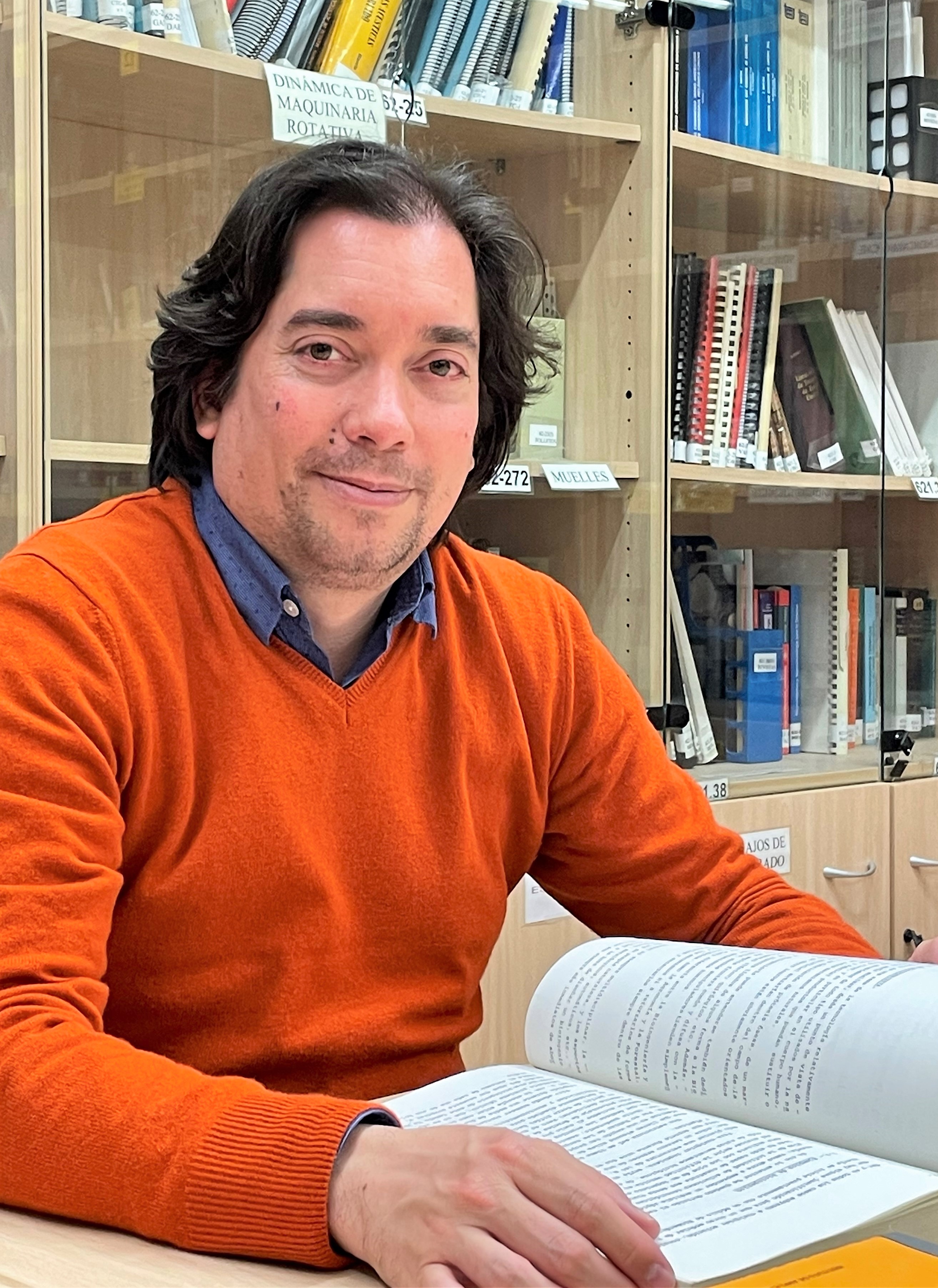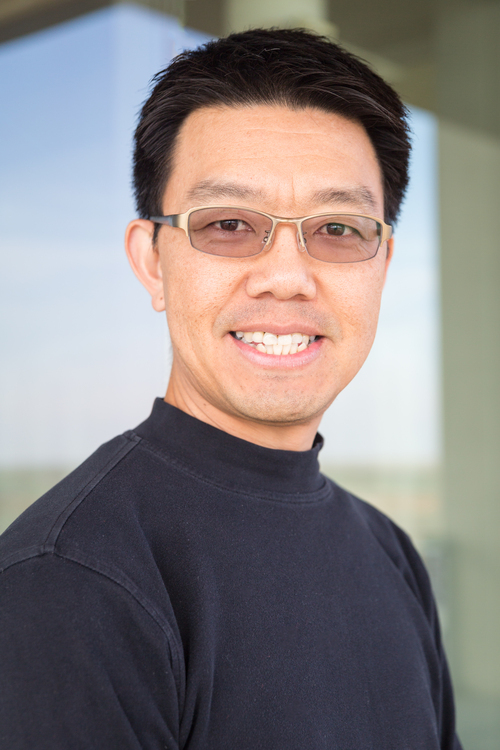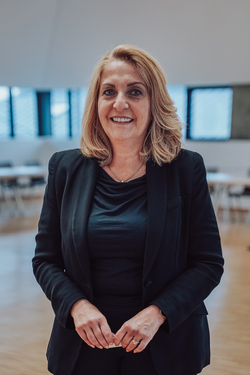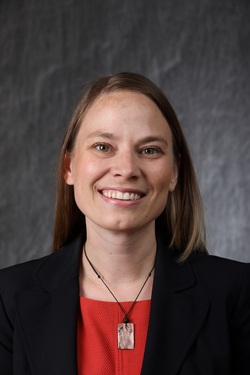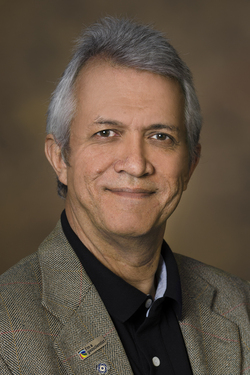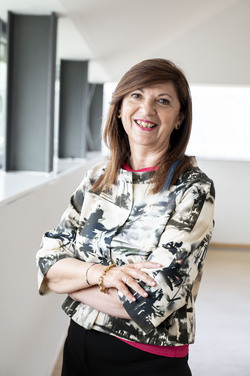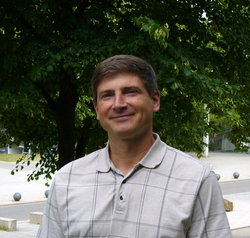Logic of Dynamical Systems for Flight Safety by Prof. Dr. André Platzer
Logic of Dynamical Systems for Flight Safety
Thursday, May 15, 2025 at 4 pm (CEST)

|
Prof. Dr. André Platzer
|
International Excellence Talk in cooperation with Humboldt Regional Group Karlsruhe-Pforzheim at the 20th Humboldt-Tag at KIT. For further information click here.
From principle to practice - how global science can be linked to local action to safeguard lives and livelihoods in Africa by Dr. Chris Funk
From principle to practice - how global science can be linked to local action to safeguard lives and livelihoods in Africa
Wednesday, May 14, 2025 at 3 pm (CEST)
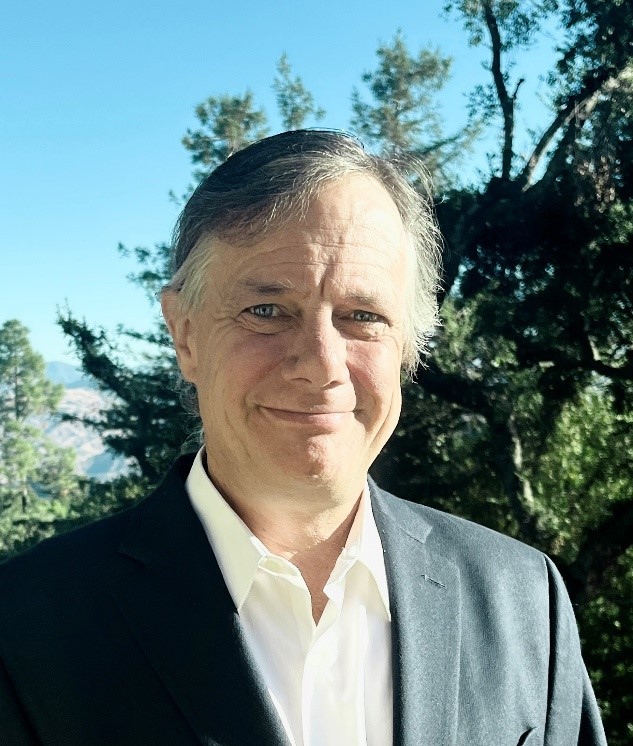
|
Dr. Chris Funk
|
Abstract:
In our modern world, so filled with distraction, it can be easy to forget the value of principles. Some simple ethical principles – like being kind to each other and helping those most in need – have laid the foundation of civilization. Some simple physical principles – like how warmer air holds more water vapor – help lay the foundation for climate hazard forecasting in a warming world. In our applied climate research, we have found that connecting these principles informs effective early warning systems. These systems take advantage of global scientific resources to inform local life-saving anticipatory actions. This is what we will talk about in this presentation.
From first principles, we can expect that tropical rainfall events in a warming world will become more intense. Yet, relatively few people appreciate how this process can intensify the impacts of large-scale climate variations. Over the past decade, frequent El Niño, La Niña and Indian Ocean Dipole events have produced extreme weather in eastern and southern Africa. Collaborators in the US, Europe and East Africa have been studying how climate change amplifies the strength of these teleconnections. We have also been combining these insights with the power of global climate models. This allows us to predict many extreme wet and dry rainy seasons. We can also integrate these forecasts with global satellite observations, thereby producing best-in-science agricultural outlooks.
But the most exciting part of the story comes in the last mile, when local meteorologists, agricultural experts, and media outreach developers craft advisories that can potentially reach millions of farmers. Stretching across countries, academic disciplines, and social groups, these information streams connect us, providing those in need with critical opportunities to adapt, manage weather risks, and be more successful. While many technical and societal challenges remain, these partnerships provide important examples of how science can contribute to society.
AI and the Future of Research: Stakeholders, Process, and Practices by Prof. Victoria Stodden
AI and the Future of Research: Stakeholders, Process, and Practices by Victoria Stodden
Monday, January 20, 2025 at 5:30 PM (CET)
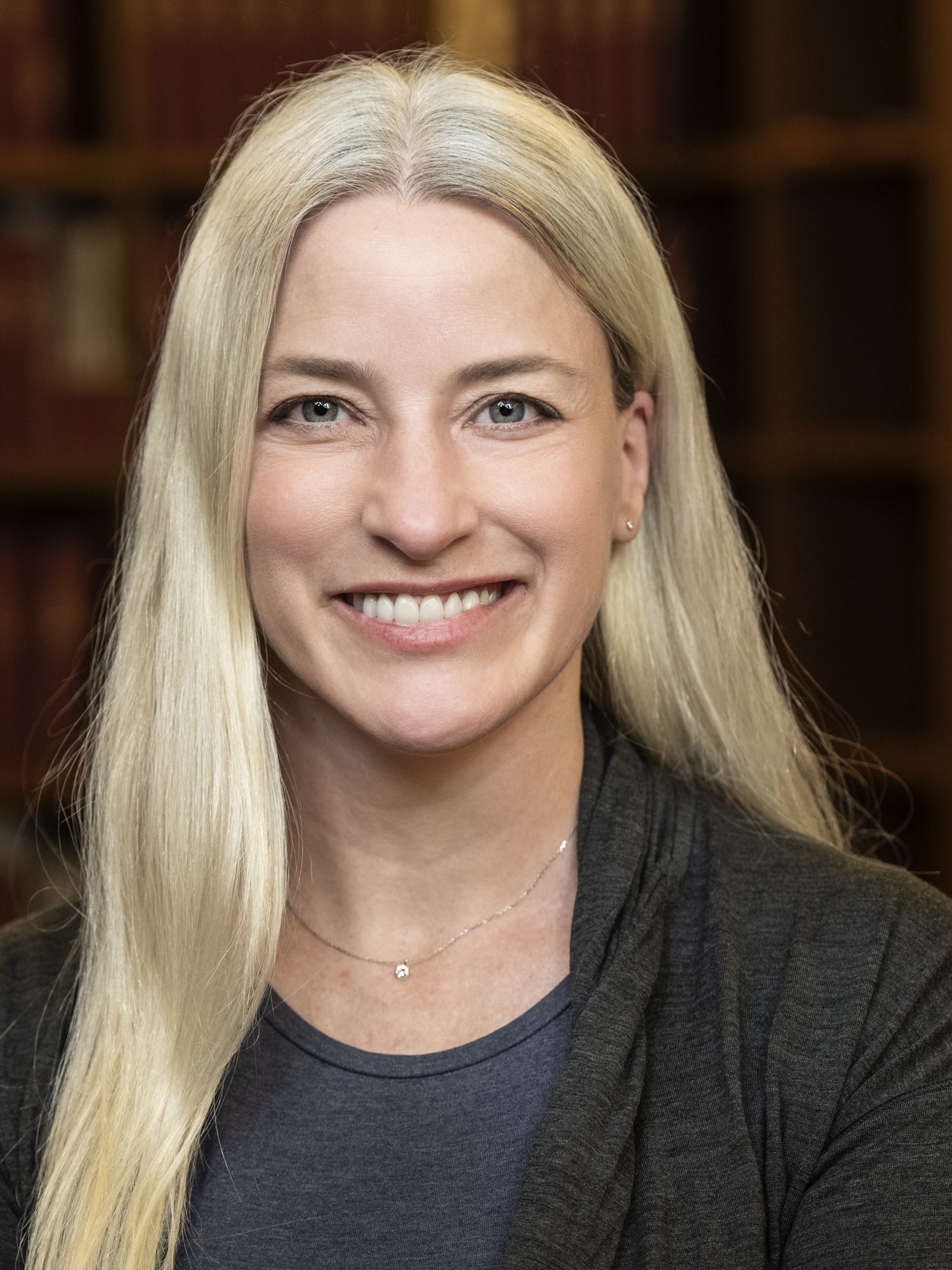
|
Prof. Victoria Stodden
|
Abstract: In the last 10 years colossal cloud infrastructure investments behind the rise of near-ubiquitous global mobile technologies have trickled down to scientific research through innovative infrastructure including cloud compute and storage, I/O tools, data analysis and modeling frameworks, which in turn have generated broad and expanding communities of users and supporters. Arguably, the recent success of Large Language Models was catalyzed by the resulting technological innovations of 1) open and accessible massive data, and 2) re-executable discovery pipelines for model estimation and prediction. These changes are deeply disruptive to the research community since they open new paths to knowledge creation that were previously inaccessible and largely culturally unknown. The scientific community is faced with the challenge of responding to changes in research modalities due to these technological innovations. Research is now conducted as “Olympics” of benchmarked competitions between machine learning models leveraged by the opaque results of Large Language Models, access to massive data, and redeployment of complex scientific discovery workflows. In this plenary I provide a roadmap of changes and responses by various stakeholders in the research community to ensure that scientific results remain reliable and reproducible, and secure within a position of trust in the broader society.
Challenges of Designing Quantum Computing Systems by Prof. Susmita Sur-Kolay
Challenges of Designing Quantum Computing Systems
Tuesday, November 12, 2024 at 3:00 PM (CET)
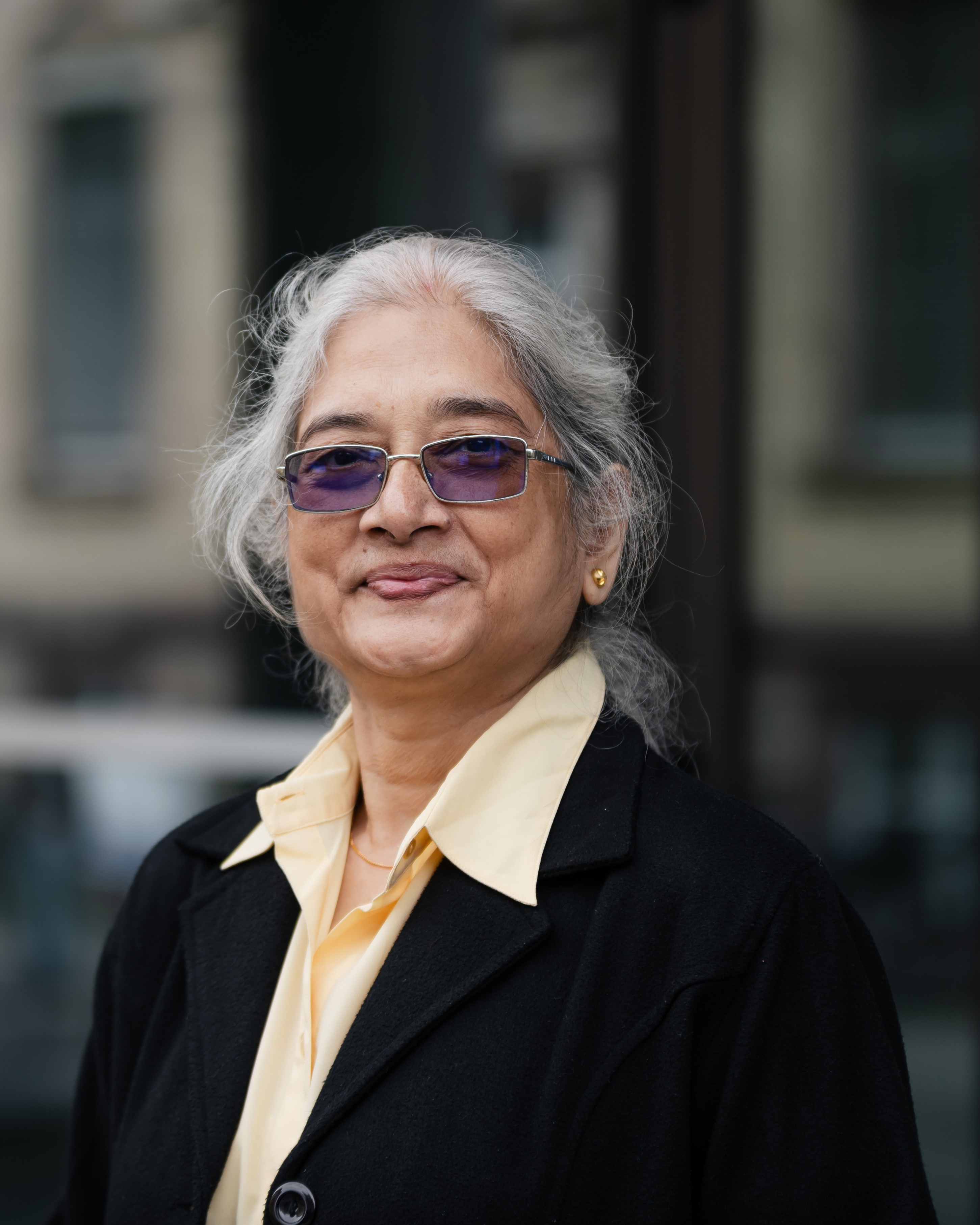
|
Prof. Susmita Sur-Kolay
|
Abstract: The two major drivers for quantum computing have been the need to overcome the limitations of classical deterministic digital computers in terms of both computational complexity and the technology for building them. First, we delve into the basic model of quantum computing. Next, we give a snapshot of the application domains where for certain problems remarkable speed-up over classical computing have been achieved by quantum computing. Then, the progress in technology is sketched briefly. Finally, we present the specific challenges in designing efficient quantum circuits comprising a cascade of gates (primitive quantum operations) in order to realize quantum computing taking its inherent error-prone nature.
Inspiring the Design of New Materials by Prof. Zhengtao Xu
Inspiring the Design of New Materials by Prof. Zhengtao Xu
July 12, 2024 at 3:00 PM (CEST)
|
|
Prof. Zhengtao Xu
|
Abstract:
Trees, Butterflies and Soap Bubbles:
Inspiring the Design of New Materials
How does watching trees and butterflies help us make new superconductors?—join us for a fun trip across the art terrains in the science of chaos, order, and molecular building blocks for tomorrow.
Facile Chemical Approaches to Derive Functional Interfaces by Dr. Uttam Manna
Facile Chemical Approaches to Derive Functional Interfaces by Dr. Uttam Manna
|
|
Dr. Uttam Manna
|
Abstract: The nature-inspired wettabilities that either extremely repelled or allowed effortless sliding of different liquids (oil/water) in air or underwater are with immense potential for various prospective applications. In common practice, essential chemistry and appropriate topography that conferred the special liquid wettabilities were mostly and generally achieved by associating delicate chemistry. Eventually, the synthesized materials suffered from poor durability issues. In the literature, very few designs are capable of providing durable bio-inspired wettability—but fabrication processes remain generally complex. Moreover, the integration of various other relevant physical properties with such durable liquid wettability is highly challenging to achieve.
Hence, design of robust bio-inspired liquid wettability following a simple fabrication process that would allow to integrate different and relevant physical properties is utmost important for various fundamental and applied contexts. Related to this, recently, our research group has extended conjugate addition reactions between amine and acrylates at ambient conditions to develop tolerant and functional liquid wettability. The controlled tailoring of different bioinspired liquid wettability from the porous and che-mically reactive interfaces—following strategic post modulation of the chemically reactive inter-faces will be discussed in this invited lecture. A strategic association of adequate crosslinkers can provide a highly tolerant and hard superhydrophobic coating on geometrically complex and soft materials. Such a simple chemical approach also allowed to reveal important fundamental aspects related to different bio-inspired wettability. Taking advantage of the durable bio-inspired wettability, the synthesized nature inspired interfaces were successfully applied to demonstrate some practically relevant applications—including controlled release of small molecules, water splitting, oil/water separation, water harvesting, sensing, anticounterfeiting etc.
A New Perspective on Complex Network Representation by Prof. Dr. Cigdem Yalcin
A New Perspective on Complex Network Representation by Prof. Dr. Cigdem Yalcin
May 16, 2024 at 3:00 PM (CEST)
|
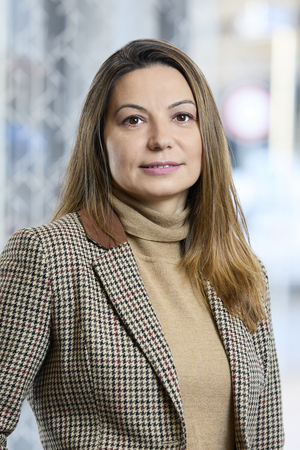 |
Assoc. Professor Dr. Cigdem Yalcin
|
Abstract: Numerous real-world systems, whether they are of natural or human origin, display complex interactions and dynamics evolving over time. As well known, transforming time series data into a complex network representation helps to gain a deep understanding of the dynamics underlying the data. In this talk, I will provide an introduction about converting time series to complex networks and then introduce a new approach in the context of physics for converting spatial-temporal series data into a complex network. And as an example study, I will discuss its application to the air quality of various regions in Istanbul, the largest metropolitan city in Turkey with a population of approximately 16 million.
Data-driven Load Profiles and the Complex Dynamics of Electricity Consumption by Prof. Dr. Christian Beck
Data-driven Load Profiles and the Complex Dynamics of Electricity Consumption by Prof. Dr. Christian Beck
June 27, 2024 at 3:00 PM (CEST)
|
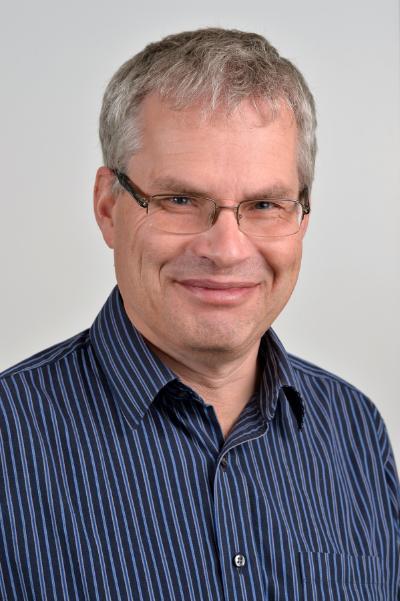 |
Professor Dr. Christian Beck
|
Abstract: Power grids are the biggest machines on Earth. They are also the most complex ones, as they involve human beings and their complex correlated electricity consumption patterns. In this talk I will give some short overview on data-driven research dealing with frequency fluctuations in power grids. Whereas variations in the dynamics of renewable energy generation are reasonably well studied, a deeper understanding of the variations in consumer consumption dynamics is still missing. I will talk about highly resolved residential electricity consumption data of Austrian, German and UK households and introduce a stochastic model to quantitatively capture the highly intermittent demand fluctuations.
Engineering interfaces between biological tissues and hydrogels by Dr. Jianyu Li
Engineering interfaces between biological tissues and hydrogels
May 16, 2024 at 3:00 PM (CEST)
|
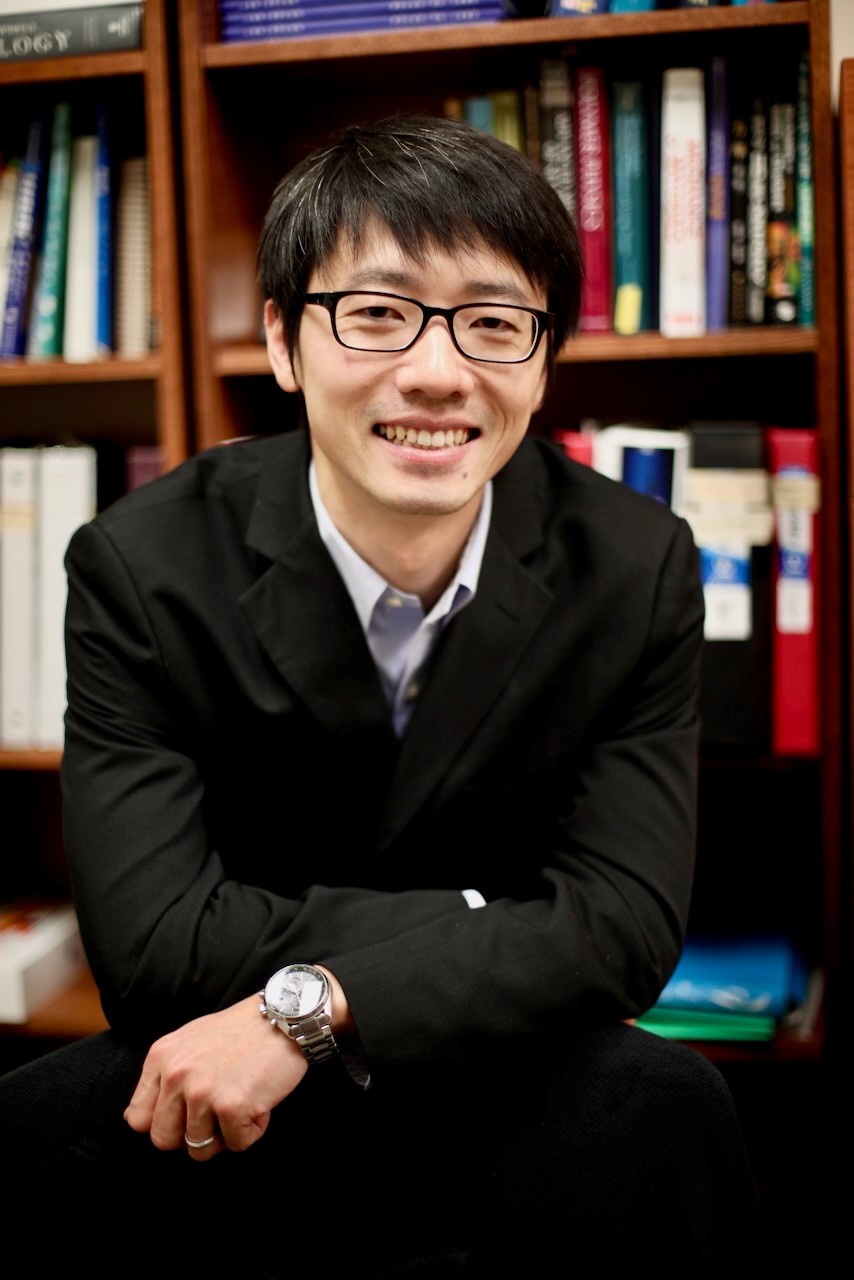 |
Dr. Jianyu Li
|
Abstract: Interfaces between biological tissues and hydrogels are underpinned in various applications, from wound care, tissue engineering to wearable technologies. Forming and controlling tough adhesion between them has been a long-standing challenge, necessitating transdisciplinary approaches. In my talk, I will share our progress in the development and translation of bioadhesive technologies. I will discuss the design principles for achieving reliable and controllable interfaces between hydrogels and tissues, which lead to tough bioadhesives with superior adhesion performance on diverse tissues. Furthermore, I will introduce new methodologies and mechanisms, such as ultrasound and interfacial entanglements, for orchestrating tough bioadhesion. Lastly, I will showcase the applications of tough bioadhesives in wound care, tissue repair, and hemorrhage management. This talk will highlight the synergy of materials and mechanics in forging innovative biomaterials to address biomedical challenges.
Drivers and Subseasonal Predictability of Cold Air Outbreaks in the Central United States by Dr. Jason Furtado
Drivers and Subseasonal Predictability of Cold Air Outbreaks in the Central United States
Wednesday, May 15, 2024 at 4:00 PM (CEST)
|
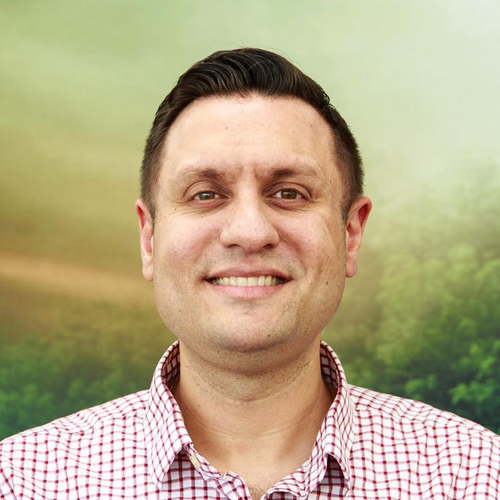 |
Jason C. Furtado, Ph.D.
|
Abstract: Even in a warming world, extreme winter weather events like cold air outbreaks still occur and have high socioeconomic costs, but they remain a challenge to forecast skillfully in the subseasonal-to-seasonal timeframe (i.e., 2-8 weeks). In this talk, I will discuss recent work by the Applied Climate Dynamics Group at the University of Oklahoma to improve our dynamical understanding of the evolution of cold air outbreaks in the central United States and then use this knowledge to improve skill in subseasonal predictions of those events. We use a combination of observations and numerical modeling experiments to show why we should care about intraseasonal variability in the stratosphere to improve our forecast skill, including considering different types of stratosphere-troposphere coupling outside of the “classical” paradigm. Additionally, we will highlight particular precursor flow patterns in the upper troposphere (so-called blocking patterns) which were key for skillful 3+ week forecasts of the February 2021 North American Cold Air Outbreak and could be exploited for long-lead predictions of future cold air outbreaks.
Security, Stability, and Control for Zero-Emission Bulk Power Grids and Microgrids Dr. Xiaozhe Wang
Security, Stability, and Control for Zero-Emission Bulk Power Grids and Microgrids
Date: 12 April, at 9:30 AM (CEST)
Topic: Security, Stability, and Control for Zero-Emission Bulk Power Grids and Microgrids
Speaker: Dr. Xiaozhe Wang
Venue: Building 449, ground floor, Room 140.
|
|
Dr. Xiaozhe Wang
|
Abstract: The modern low-carbon smart grids face several challenges including the high uncertainty level brought about by the intermittent renewable energy sources, increasing complexity of system modeling due to the integration of converter-interfaced sources (CIGs), and the vulnerability of power grids to cyberattacks because of growing dependence on information technology. In this talk, I will present some recent works of my group addressing the three challenges. To assess the impacts of uncertainty on power system security and operation, we developed polynomial chaos expansion (PCE)-based methods to carry out accurate and efficient probabilistic security assessments including probabilistic power flow, available transfer capability assessments, economic dispatch, microgrid service support, etc. Uncertainty-aware control using energy storage systems is also being designed to reduce the negative impacts of uncertainty and promote the integration of clean energy. To handle the increasing complexity in modeling, analysis and control due to CIGs, we leveraged the high-frequency GPS-synchronized data provided by Wide Area Monitoring System (WAMS) and designed data-driven methods to detect network topology change, conduct wide-area damping control, locate forced oscillations, estimate inertia, maintain voltage and frequency stability for both large grids and microgrids. To investigate the cybersecurity of power grids, we designed false data injection models targeting AC state estimation and automatic generation control (AGC) without the knowledge of system models and parameters. Our current works on the detection and mitigations of the attack models will also be discussed.
Improving our understanding of Earth’s upper troposphere and lower stratosphere by combining aircraft and laboratory studies by Dr. Daniel Cziczo
Improving our understanding of Earth’s upper troposphere and lower stratosphere by combining aircraft and laboratory studies
Date: Wednesday, November 29, 2023 at 5:00 PM (CET)
Topic: Improving our understanding of Earth’s upper troposphere and lower stratosphere by combining aircraft and laboratory studies
Speaker: Prof. Dr. Daniel Cziczo
Venue: Building 30.22, Lehmann Lecture Hall
|
|
Prof. Dr. Daniel Cziczo
|
Abstract: Until the late 1990s, the particles found in the upper tropospheric / lower stratospheric (UTLS) were an area of uncertainty in atmospheric science. At about the same time, instruments were developed that could be flown on high altitude research aircraft to determine particle composition and large chambers were built that allowed us to mimic the conditions in this remote region of the atmosphere. This talk will review how aircraft measurements and laboratory studies have been, and will continue to be, used in concert to better understand atmospheric chemistry, precipitation and our climate.
New measurement methods to improve design and safety of hydraulic structures Prof. Stefan Felder
New measurement methods to improve design and sefety of hydraulic structures
Date: November 24, 2023 at 11:30 AM (CET)
Topic: New measurement methods to improve design and safety of hydraulic structures
Speaker: Prof. Stefan Felder
Venue: Building 10.81, Room 305, Campus South
|
|
Prof. Stefan Felder
|
Abstract: Hydraulic structures, such as dams fulfill many societal functions including water supply, flood mitigation and generation of hydropower. Their safety is paramount and a failure can be catastrophic. The design of hydraulic structures must therefore be conducted with the highest technical standards using state-ofthe-art measurement approaches. Despite their significance, current design practice for flood release and energy dissipation facilities is limited to small scale physical modeling combined with numerical modelling while significant limitations exist due to scale effects and missing prototype validation data. In recent years, some new advances have been made in the use of instrumentation and post-processing methods that can provide more confidence in the design of hydraulic structures and that may change the way we design structures in the future. Herein, this talk provides an overview about recent developments in the instrumentation relevant for hydraulic structures including phase-detection intrusive probes, remote sensing with LIDAR and camera technology as well as lagrangian-type sensors for fish safety assessment.
Automatic Question Answering from Archival Document Collections Dr. Adam Jatowt
Automatic Question Answering from Archival Document Collections
Date: 20. July, 2023 at 05:00 PM
Topic: Automatic Question Answering from Archival Document Collections
Speaker: Dr. Adam Jatowt
Venue: In-Person Event
|
|
Prof. Dr. Adam Jatowt
|
Abstract: Open Domain Question Answering (ODQA) has been researched for a while as a task in the intersection of NLP and IR that seeks to answer user questions against an underlying collection of documents. We focus here on answering questions from large scale news archives that span several decades, as a new subtype of ODQA which requires proper handling of temporal information. We will present several approaches to this variant of ODQA, and we will discuss the challenges and opportunities of accessing detailed information from temporal document collections, particularly, in the current era of large language models
Design and Additive Manufacturing of Smart Shape-Morphing Medical Devices Towards Engineered Living Materials by Prof. Dr. Andres Díaz Lantada
Design and Additive Manufacturing of Smart Shape-Morphing Medical Devices Towards Engineered Living Materials by Prof. Dr. Andres Díaz Lantada
Date: Wednesday, 5 July 2023 at 5:00 PM (CET)
Topic: Design and Additive Manufacturing of Smart Shape-Morphing Medical Devices Towards Engineered Living Materials
Speaker: Prof. Dr. Andrés Díaz Lantada
Venue: In-Person Event
|
|
Prof. Dr. Andrés Díaz Lantada
|
Abstract: This talk will provide an overview of past and ongoing research in Prof. Dr. Andrés Díaz Lantada’s research team at the Department of Mechanical Engineering, Universidad Politécnica de Madrid (UPM), Spain. A historical overview of additive manufacturing with smart materials will be presented, including experiences leading to shape-morphing systems before the trendy concept of “4D printing” was introduced. An analysis of their connections to personalized healthcare, which can be importantly fostered by the micromanufacturing of smart materials and structures, will be illustrated through different case studies. Prof. Dr. Díaz Lantada will show results from 4 European projects from Horizon 2020 and Horizon Europe programmes (TOMAX, UBORA, INKplant and BIOMET4D), in which he has led UPM’s participation. He will also explain important advances of the recent highly competitive iMPLANTS-CM “Synergy Project”, funded by Madrid’s General Directorate for Research and Innovation. In this project he acts as coordinating principal investigator, working hand in hand with Prof. Dr. Jon Molina Aldareguia from IMDEA Materials Institute as co-principal investigator, for researching and industrially developing the 4D printing of smart alloys for innovative medical technologies. Applications in tissue engineering and biofabrication, articular repair, cardiovascular devices, minimally invasive surgery and other emergent fields empowered by the additive manufacturing of smart, shape-morphing and living materials will be discussed and exemplified, many of them through experiments and prototypes developed in collaboration with colleagues from the Institute of Microstructure Technology, Karlsruhe Institute of Technology.
Applications of Machine Learning in Climate Change and Environmental Modeling by Dr. Zoe Li
Applications of Machine Learning in Climate Change and Environmental Modeling by Dr. Zoe Li
Date: Thursday, 25 May 2023 at 5:30 PM (CET)
Topic: Applications of Machine Learning in Climate Change and Environmental Modeling
Speaker: Dr. Zoe Li
Venue: In-Person Event
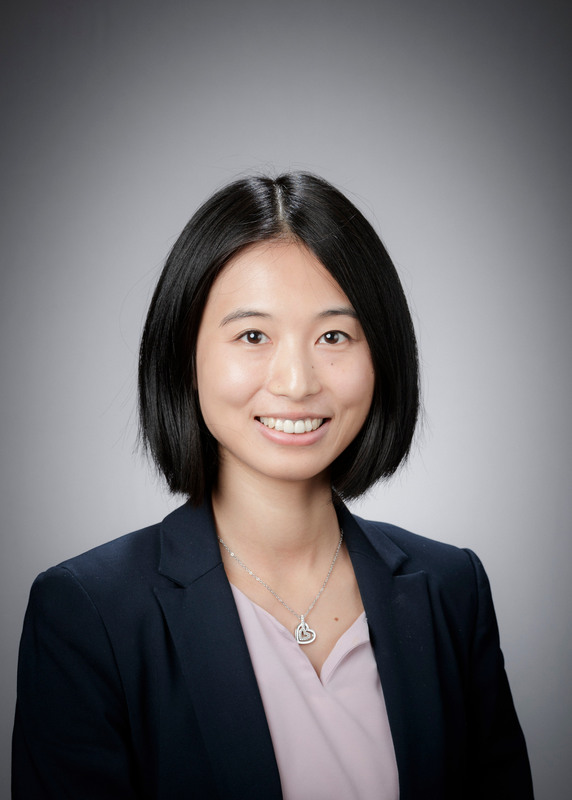 |
Dr. Zoe Li
|
Abstract: This talk will provide an overview of past and ongoing research in Dr. Zoe Li’s research team at the Department of Civil Engineering, McMaster University, Canada. Dr. Li’s research focuses on environmental risk analysis and management, where she introduces new uncertainty quantification methods for climate-hydrological and environmental modeling and develops robust optimization tools to support risk analysis and management. With a focus on how to leverage machine learning techniques to solve environmental problems, Dr. Li will present several applications of machine learning for climate downscaling, hydrological forecasting, river ice prediction, and wastewater modeling
A Career in STEM: From the Alps to Antarctica and the valleys and peaks in between by Prof. Danielle Skropeta
A Career in STEM: From the Alps to Antarctica and the valleys and peaks in between by Prof. Danielle Skropeta
Date: Tuesday, 21 March 2023 at 5:00 PM (CET)
Topic: A Career in STEM: From the Alps to Antarctica and the valleys and peaks in between
Speaker: Prof. Danielle Skropeta
Venue: In-Person Event
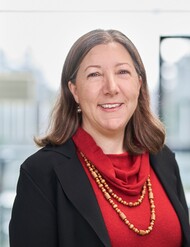 |
Prof. Danielle Skropeta
|
Abstract: This talk will cover the chemistry career of medicinal chemist Danielle Skropeta through her early career in Germany and Italy to her current role as Professor in Chemistry and Associate Dean (Higher Degree Research) at the University of Wollongong, Australia. Prof Skropeta leads a research group in chemical glycobiology developing new pathways to more effective treatments in cancer and bacterial infections. Throughout her career, Prof Skropeta has been involved in outreach activities sharing her science from podcasts to international documentaries. Furthermore, the talk will discuss how to build bridges outside of the University (working with industry, community and government). She is also passionate about equity and inclusion and creating a supportive environment for a greater diversity of scientists to succeed in the chemistry field, as well as working together to address the global challenges of the future.
Electrocatalytic Materials and Design: Towards Hydrogen Energy Sustainability by Dr. Po-Ya Abel Chuang
Electrocatalytic Materials and Design: Towards Hydrogen Energy Sustainability by Dr. Po-Ya Abel Chuang
Date: Thursday, February 9, 2023 at 5:00 PM (CET)
Topic: Electrocatalytic Materials and Design: Towards Hydrogen Energy Sustainability
Speaker: Dr. Po-Ya Abel Chuang
Venue: Virtually via Zoom
|
|
Dr. Po-Ya Abel Chuang
|
Abstract: Fuel cell and electrolysis technologies are key solutions to future energy sustainability. Our research efforts at UC Merced are focusing on fundamental electrochemical study for applications such as low-temperature PEM and AEM fuel cell and electrolyzer. In my presentation, I will introduce our research activities in the following four areas: 1) Electrocatalytic Materials and Design, 2) MEA Design, Processing, and Integration, 3) Fuel Cell Testing and Characterization, and 4) Electrochemical Cell Diagnostics and Modeling.
Rational Design of Materials for Energy Production and a Cleaner Future by Dr. M. Veronica Ganduglia-Pirovano
Rational Design of Materials for Energy Production and a Cleaner Future by Dr. M. Veronica Ganduglia-Pirovano
Date: Wednesday, 23 November 2022 at 3:00 PM (CET)
Topic: Rational Design of Materials for Energy Production and a Cleaner Future
Speaker: Dr. M. Veronica Ganduglia-Pirovano
Venue: Building 330, Institute of Functional Interfaces (IFG), KIT, Campus North, Hermann-von-Helmholtz-Platz 1, 76344 Eggenstein-Leopoldshafen or virtually via Zoom
|
|
Dr. M. Veronica Ganduglia-Pirovano
|
Abstract: Methane (CH4) and carbon dioxide (CO2) are two potent greenhouse gases and their conversion to valuable resources is mandatory to bring us to a greener future. In this talk, I discuss recent results on metal/CeO2 systems which point toward a possible strategy for designing active and stable catalysts that can be employed for methane activation and conversions. The emphasis is here put on theoretical studies in combination with experiments.
A recording of this talk can be found on YouTube via this link.
Order Fulfillment Design for an Omnichannel World by Associate Professor Dr. Jennifer Pazour
Order Fulfillment Design for an Omnichannel World by Associate Professor Dr. Jennifer Pazour
Date: Tuesday, 25 October 2022 at 5:00 PM (CEST)
Topic: Order Fulfillment Design for an Omnichannel World
Speaker: Associate Professor Dr. Jennifer Pazour
Venue: KIT, Campus South, Gotthard-Franz-Str. 8, Build. 50.38, Selmayr Lecture Hall
as well as virtually via Zoom
|
|
Associate Professor Dr. Jennifer Pazour
|
Abstract: Retail and distribution operations are undergoing a vast transformation, thanks to the rapid proliferation of e-commerce, and changing customer expectations for speed, product variety, and omni-channel services. Omni-channel services, such as popular click and collect services like buy online pickup in store, provide customers with a seamless shopping experience whether the customer is shopping online or in a bricks and mortar store. Given these services shift the material handling and logistic efforts that used to be done by shoppers to store resources, this presents a challenge for retailers and an opportunity for the material handling and logistics industry and research communities. In this presentation, an overview of omni-channel material handling challenges and opportunities will be presented, including research on new operational designs, facilities, equipment, methodologies, and business models.
Find more information about her background, projects, and team on Dr. Jennifer Pazour’s webpage.
A recording of this talk can be found on YouTube via this link.
Towards Physical-Conceptual Modeling of Mass, Energy and Information Flows Using Machine Learning Technology by Prof. Dr. Hoshin V. Gupta
Towards Physical-Conceptual Modeling of Mass, Energy and Information Flows Using Machine Learning Technology by Prof. Dr. Hoshin V. Gupta
Date: Thursday, 29 September 2022 at 5:00 PM (CEST)
Topic: Towards Physical-Conceptual Modeling of Mass, Energy and Information Flows Using Machine Learning Technology
Speaker: Prof. Dr. Hoshin V. Gupta
Venue: KIT Campus South, Build. 10.81, Room 305, Otto-Ammann-Platz 1, 76131 Karlsruhe
as well as virtually via Zoom
|
|
Prof. Dr. Hoshin V. Gupta
|
Abstract: The success of any Machine Learning strategy depends on the conceptual and algorithmic Representation that is selected for Encoding and Processing Information. Further, the chosen encoding/representation completely determines the questions that can be asked, analyses that can be performed, and the answers that can be obtained. Ultimately, the effectiveness and efficiency of any ML strategy depends on Information Theoretic choices related to what Information we chose to encode (and store), the form in which we choose to encode that Information, and the method by which that encoded Information is processed. My view is that by rooting the development of Machine Learning/Artificial Intelligence and Physics-Based Modeling in the fundamental perspectives and language of Information Theory, we can hope to achieve the most rapid progress in the Domain Sciences. While my thoughts may perhaps be speculative, I do not think I am alone in thinking this way, as evidenced by ML literature related to Information Bottleneck theory, and also to the fundamentals of Computational Science.
A recording of this talk can be found on YouTube via this link.
Multidisciplinary Design and Analysis of Multifunctional Lightweight Systems by Prof. Dr. Kamran Behdinan
Multidisciplinary Design and Analysis of Multifunctional Lightweight Systems by Prof. Dr. Kamran Behdinan
Date: Thursday, 14 July 2022 at 5:00 PM (CEST)
Topic: Multidisciplinary Design and Analysis of Multifunctional Lightweight Systems
Speaker: Prof. Dr. Kamran Behdinan
Venue: Virtual (Zoom)
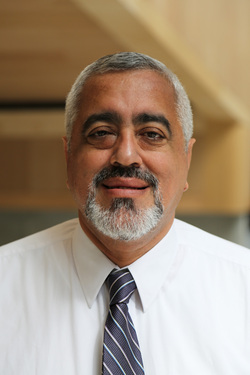 |
Prof. Dr. Kamran Behdinan
|
Abstract: In industrial product development, the importance of design flexibility, individualization and load-compliant design of component geometry is steadily increasing due to increasing emission regulations. These design requirements can be achieved by implementing advanced manufacturing (AM) processes, such as additive manufacturing, to produce near-net-shape geometries. Given the versatility of AM, there are still numerous pathways which are unexplored to improve the overall outcome of the process. Integrating Topology Optimization (TO) and Health Monitoring (HM) methodologies into the Additive Manufacturing Process, one can easily give shape to Advanced, Lightweight, Structures which would vastly improvise current trends and methods. In this presentation, advanced techniques in design and analysis of lightweight structures will be discussed. It will summarize major research projects conducted in intelligent manufacturing and lightweight structures at the UofT ARL-MLS.
A recording of this talk can be found on YouTube via this link.
Unveiling Nature's Secrets - The Future of Particle Physics by Prof. Dr. Markus Klute
Unveiling Nature's Secrets - The Future of Particle Physics by Prof. Dr. Markus Klute
Date: Thursday, 23 June 2022 at 4:00 PM (CEST)
Topic: Unveiling Nature's Secrets - The Future of Particle Physics
Speaker: Prof. Dr. Markus Klute
Venue: “Senate Hall”, Engelbert-Arnold Str. 2, 76131 Karlsruhe (building 11.30), Campus South
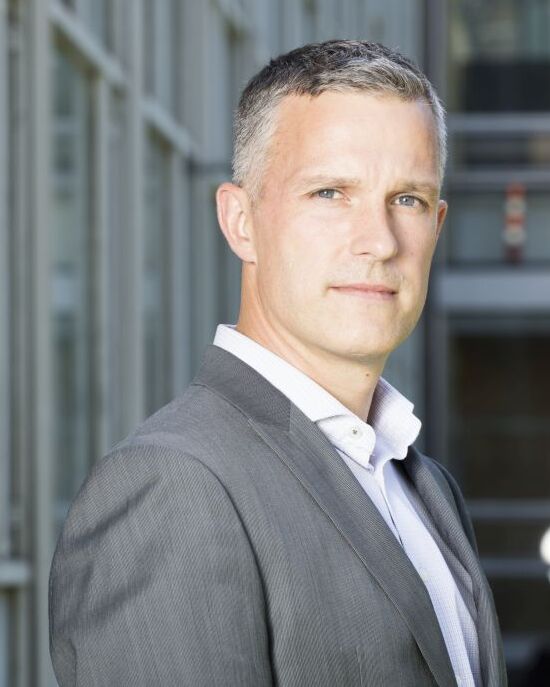 |
|
This talk was organised within the framework of the Humboldt-Tag 2022. More information about Humboldt-Tag 2022 here.
Design of Novel Architectured Materials by Prof. Dr. Yuri Estrin
Design of Novel Architectured Materials by Prof. Dr. Yuri Estrin
Date: Wednesday, 25 May, 2022 at 5:00 PM (CEST)
Topic: Design of Novel Architectured Materials
Speaker: Prof. Dr. Yuri Estrin
Venue: Virtual (Zoom)
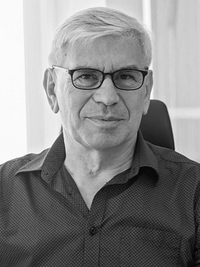 |
Prof. Dr. Yuri Estrin
|
Abstract: Design of new materials based on their inner architecture, rather than their atomic or phase composition, is an emerging trend in materials engineering. In this talk, several promising areas of research into architectured materials will be highlighted. The classes of materials to be presented are based on meso scale designs inspired by animate and inanimate Nature, but also on structures born in the minds of scientists and engineers. The guiding principles governing the design of the emerging material architectures (such as topological interlocking, lithomimetics, lattice structure designs, etc.) will be discussed along with their explored and anticipated properties. An outlook on possible future developments and applications will be provided.
Seeing the Invisible with Quantum Ghosts by Prof. Dr. Andrew Forbes
Seeing the Invisible with Quantum Ghosts by Prof. Dr. Andrew Forbes
Date: Thursday, 28 April, 2022 at 5:00 PM (CEST)
Topic: Seeing the Invisible with Quantum Ghosts
Speaker: Prof. Dr. Andrew Forbes
Venue: Virtual (Zoom)
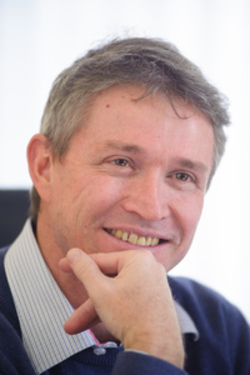 |
|
Abstract: Conventional imaging, as you do with your smartphone, is achieved with ubiquitous optical elements (such as lenses) and has remained more or less unchanged for centuries. In his talk, Prof. Forbes outlines how spooky quantum light allows us to break the rules of traditional imaging systems, including imaging without interacting with the object, high resolution photos with low resolution detectors, and making the invisible visible.
A recording of this talk can be found on YouTube via this link.
Shifting the Narratives Around Women STEMpreneurs by Dr. Katherina Kuschel
Shifting the Narratives Around Women STEMpreneurs by Dr. Katherina Kuschel
Date: Thursday, 3 March 2022 at 5:00 PM (CET)
Topic: Shifting the Narratives Around Women STEMpreneurs
Speaker: Dr. Katherina Kuschel
Venue: Virtual (Zoom)
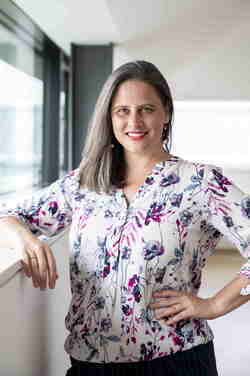 |
Dr. Katherina Kuschel
|
More Information about the speaker:
- Dr. Katherina Kuschel researches women founders of technology ventures at CENTRUM Graduate Business School and Pontificia Universidad Católica del Perú.
- Funded by the DAAD and the KIT International Excellence Fellowship (2021), Kuschel is exploring soft-landing programs and expatpreneurs at EnTechnon, KIT.
- Kuschel leads a research group on work-life issues among entrepreneurs, participated as guest editor at the International Entrepreneurship and Management Journal on Women Entrepreneurship within STEM fields and a Routledge edited book entitled The Wellbeing of Women in Entrepreneurship.
Abstract: A shift in paradigm on how we approach the role of women is also taking place in science. This talk explains the characteristics and dynamics around women entrepreneurs in STEM fields and proposes a new perspective to measure their success.
A recording of this talk can be found on YouTube via this link
Micro-scale Magnetic Resonance as a Quantitative Tool for Biology by Prof. Dr. Marcel Utz
Micro-scale Magnetic Resonance as a Quantitative Tool for Biology by Prof. Dr. Marcel Utz
Date: Thursday, 27 January 2022 at 6:00 PM CET
Topic: Micro-scale Magnetic Resonance as a Quantitative Tool for Biology
Speaker: Prof. Dr. Marcel Utz
Venue: Virtual (Zoom)
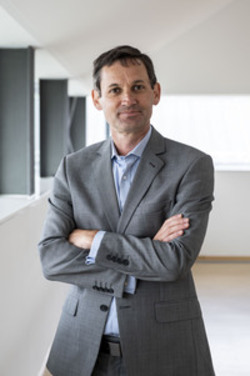 |
Prof. Dr. Marcel Utz
|
A recording of this talk can be found on YouTube via this link
Moving from "Human as Problem" to "Human as Solution" in Cyber Security by Dr. Karen Renaud
Moving from "Human as Problem" to "Human as Solution" in Cyber Security by Dr. Karen Renaud
Date: Thursday, 25 November 2021 at 6:00 PM CET
Topic: Moving from "Human as Problem" to "Human as Solution" in Cyber Security
Speaker: Dr. Karen Renaud
Venue: Virtual (Zoom)
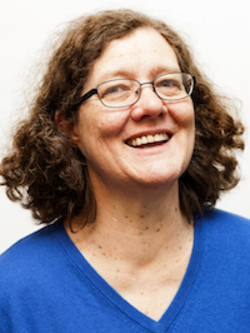 |
Dr. Karen Renaud
|
Abstract
The cyber security industry treats all humans in the system as if they might well be malicious actors, and the solutions are designed to prevent insecure behaviors. This viewpoint demonstrates a “Human-as-Problem” mindset. It seems appropriate to take a look at the way cybersecurity is conceptualized and to consider whether there is a need for a mindset change. Dr. Renaud is proposing a paradigm change: "Human as Solution". This new mindset rests on recognition of the fact that the problem is actually the high complexity, interconnectedness and emergent qualities of socio-technical systems, and not a single component of the socio-technical system. The new mindset acknowledges the well-intentioned human's ability to be an important contributor to organizational cybersecurity and their potential to be “part of the solution" rather than “the problem". The focus is on enhancing factors that contribute to positive outcomes and on building resilience rather than sheer resistance.
Find more information about her background and current projects on Dr. Karen Renaud's website.
A recording of this talk can be found on YouTube via this link
Materials Development for the Next Generation of Solar Cells by Dr. David Jones
Materials Development for the Next Generation of Solar Cells by Dr. David Jones
Date: Thursday, 28 October 2021 at 6:00 PM CET
Topic: Materials Development for the Next Generation of Solar Cells
Speaker: Dr. David Jones
Venue: KIT Campus South, Engesserstraße 13, Building 30.34, Room 017
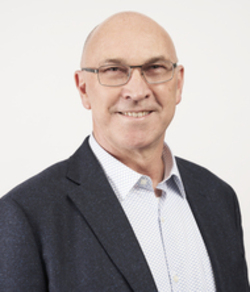 |
Dr. David Jones
|
Abstract
World energy demand is expected to double by 2050, reaching fifteen terawatts (15 TW), however, to supply this demand without increasing carbon dioxide emission remains a challenge. The embedded energy in silicon solar cells, expressed as an energy payback period, remains high at around 1.4 years, while the lifetime emitted carbon dioxide of silicon solar cells remains at 40-100 gCO2.e/kWh depending on installation location. Next generation solar cells, like organic solar cells, have reported energy payback periods of months, if not weeks, with lifetime emitted carbon dioxide levels of 10 gCO2.e/kWh offering significant environmental advantages. In this talk I will discuss recent materials development from new p-type organic semiconductors to the use of quantum coupled process to improved solar cell efficiency.
A recording of this talk can be found on YouTube via this link
Virtual Experiments? Why and How! by Prof. Dr. Antonina Pirrotta
Virtual Experiments? Why and How! by Prof. Dr. Antonina Pirrotta
Date: Thursday, 22 July 2021 at 6:00 PM CET
Topic: Virtual Experiments? Why and How!
Speaker: Prof. Dr. Antonina Pirrotta
Venue: Virtual (Zoom)
|
Prof. Dr. Antonina Pirrotta
|
A recording of this talk can be found on YouTube via this link
Exploring the Limits of Metals Strength by Prof. Dr. Eugen Rabkin
Exploring the Limits of Metals Strength by Prof. Dr. Eugen Rabkin
Date: Thursday, 23 September 2021 at 5:00 PM CET
Topic: Exploring the Limits of Metals Strength
Speaker: Prof. Dr. Eugen Rabkin
Venue: KIT Campus North, Building 681, Room 214
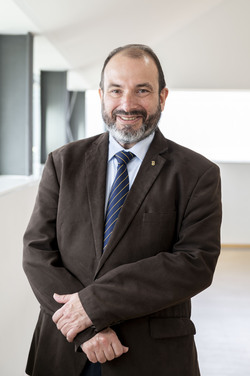 |
Prof. Dr. Eugen Rabkin
|
Abstract
Rabkin presented his insights on mechanical strength of elemental metals and alloys. More specifically, his group has studied the uniaxial compression behavior of micro- and nanoparticles of several elemental metals (Au, Ni, Ag, Mo, Pt) and alloys (Ni-Fe, Ni-Co, Au-Ag). The particles were obtained by solid state dewetting of thin metal films and multilayers deposited on hard substrates. The record-breaking compression strength of the particles (i.e. 46 GPa for Mo) and counterintuitive solid solution weakening were observed and correlated with the nucleation of dislocations – linear defects responsible for metals plasticity. The observed values of strength put metals on par with the strongest materials such as diamond or carbon nanotubes.
Rogue Waves in Nature and integrable Models by Prof. Dr. Dmitry Pelinovsky
Rogue Waves in Nature and integrable Models by Prof. Dr. Dmitry Pelinovsky
Date: Thursday, 24 June 2021 at 6:00 PM CET
Topic: Rogue Waves in Nature and Integrable Models
Speaker: Prof. Dr. Dmitry Pelinovsky
Venue: Virtual (Zoom)
|
Prof. Dr. Dmitry Pelinovsky
|
A recording of this talk can be found on YouTube via this link
Fighting Cancer with Light by Prof. Dr. Igor Komarov
Fighting Cancer with Light by Prof. Dr. Igor Komarov
Date: Thursday, May 20, 2021 at 6:00 PM CET
Topic: Fighting cancer with light-emerging technologies
Speaker: Prof. Dr. Igor Komarov
Venue: Virtual (Zoom)
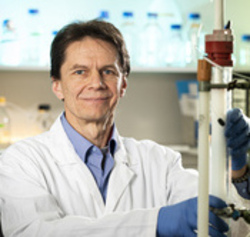 |
Prof. Dr. Igor Komarov
|
A recording of this talk can be found on YouTube via this link

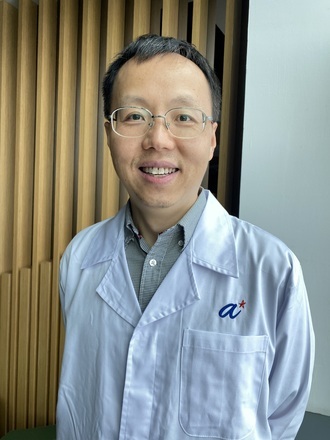
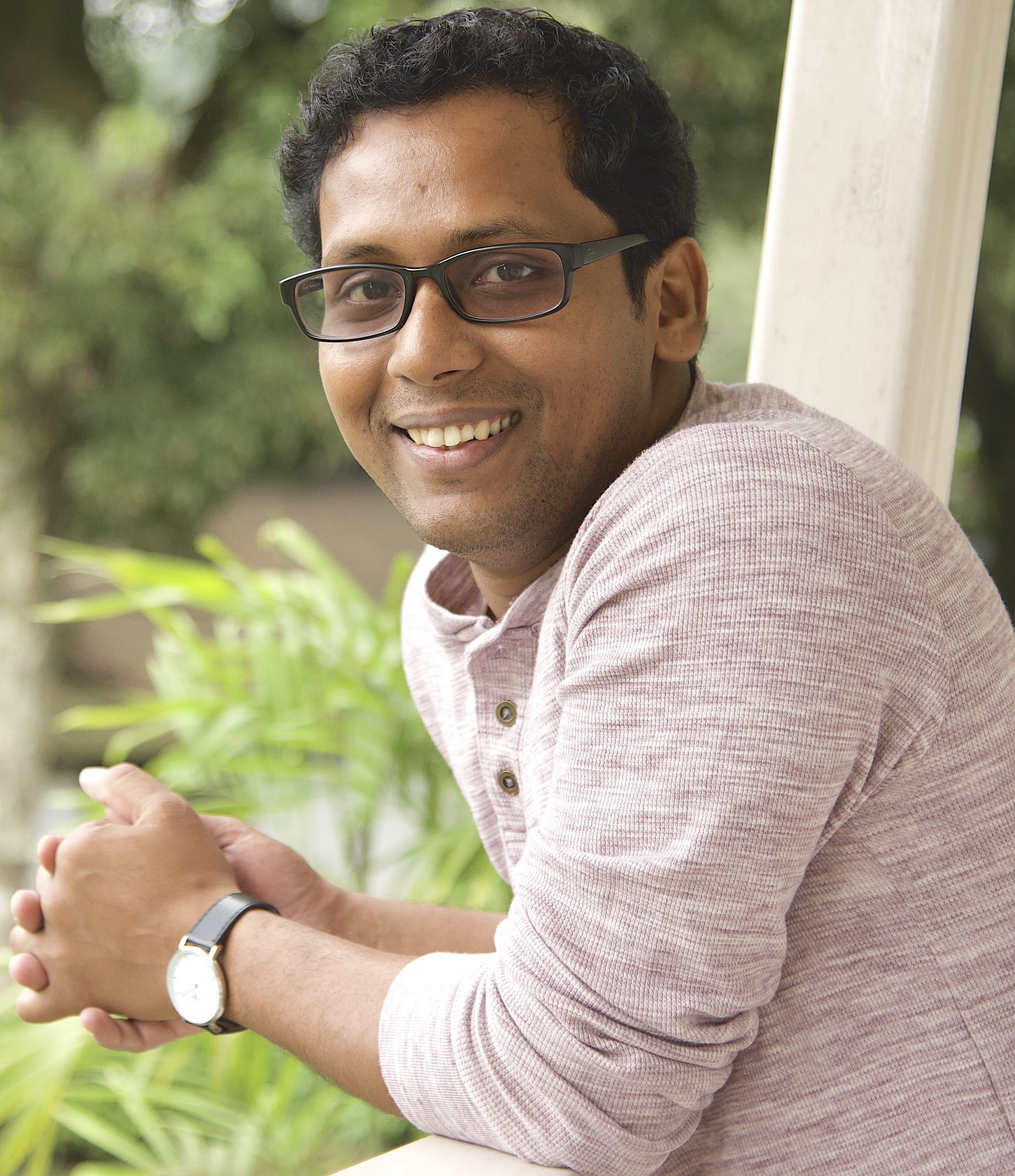
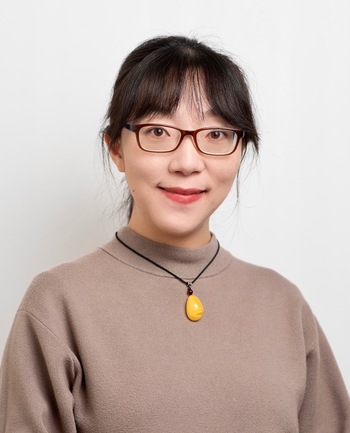
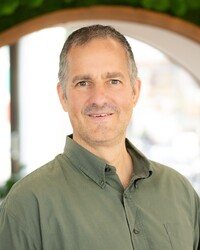
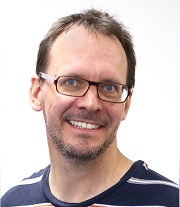
.jpg)
